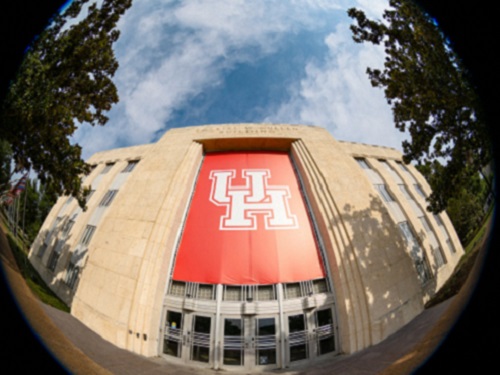A new research center led by the University of Houston seeks to help prevent potential cyberattacks that could threaten to impede the safe and efficient movement of people and goods in the United States and throughout the world.
[Above photo by the University of Houston]
CYBER-CARE – the Transportation Cybersecurity Center for Advanced Research and Education – is a Tier 1 U.S. Department of Transportation University Transportation Center supported by a $2 million USDOT grant for its first year with anticipated total federal funding of $10 million over five years.
“We all use transportation. Therefore, maintaining our transportation system’s cybersecurity is a crucial goal. Any security breaches or failures could have significant consequences for this country and its cyber-physical systems, even our quality of life,” said Yunpeng “Jack” Zhang, associate engineering professor and the center’s director, in a statement.
“Our goal to make our intelligent transportation system safer for all road users. That aligns well with the USDOT’s strategic goal of improving safety,” he explained. “We also will promote interdisciplinary research and education across the transportation and cybersecurity domains.”
Joining the university as part of its cybersecurity consortium are Embry-Riddle Aeronautical University; Rice University; Texas A&M University-Corpus Christi; University of Cincinnati; and University of Hawai‘i at Mānoa.
Professor Zang said the center will focus on four goals:
- Protecting vehicle control systems that perform safety-critical functions;
- Detecting and responding to potential cyber incidents involving U.S. traffic networks;
- Building a framework that incorporates cyber-resilience and enables rapid recovery after cyber incidents; and
- Disseminating information as a resource in the development of industry-wide best practices.
The University of Houston noted that cybercrime of all forms is estimated to have cost the global economy more than $1 trillion in 2020. Those costs are estimated to reach $10.5 trillion annually by 2025, the school said.
The university added that the U.S. Bureau of Labor Statistics estimates that cybersecurity jobs could grow by 31 percent over the next decade, which confirms the need for dedicated cybersecurity research and training.
“What we learn from the CYBER-CARE research projects will help inform policy decisions and allocation of public resources,” Zhang noted. “We are in a position to accelerate industry collaboration, foster new technologies and provide industry professionals with the skills and career development to become leaders in their fields.”
 Nation
Nation
Registration Open for AASHTO’s Winter Rail Meeting
December 19, 2025 Nation
Nation

